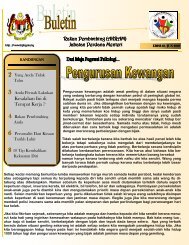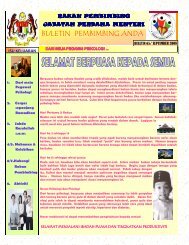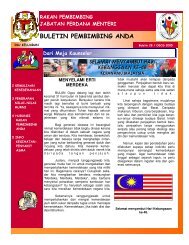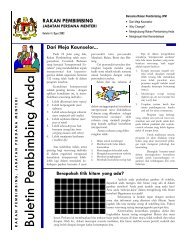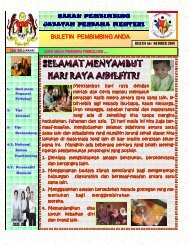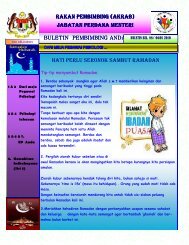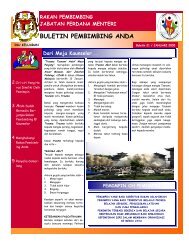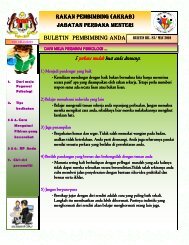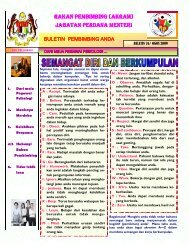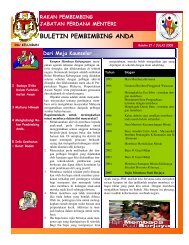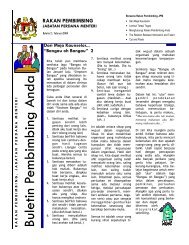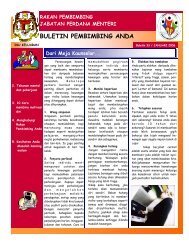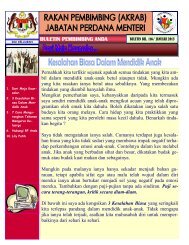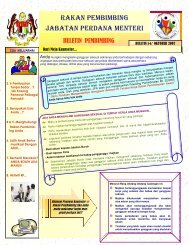Latihan Pembimbing Rakan Sebaya - Jabatan Perdana Menteri
Latihan Pembimbing Rakan Sebaya - Jabatan Perdana Menteri
Latihan Pembimbing Rakan Sebaya - Jabatan Perdana Menteri
Create successful ePaper yourself
Turn your PDF publications into a flip-book with our unique Google optimized e-Paper software.
BU LETIN 3 / MAC 20 04<br />
Mukasurat 5<br />
Understanding & Helping Children<br />
With ADHD<br />
What is ADHD?<br />
ADHD?<br />
Parents and teachers often<br />
decsribe children who are excitable,<br />
boisterous or disobedient<br />
as hyperactive. The terms<br />
attention deficit hyperactivity<br />
disorder (ADHD) or attention<br />
deficit disorder (ADD)<br />
are used by the medical professional<br />
to describe a more<br />
severe and long-lasting problem<br />
in children.<br />
ADD, attention dificit disorder<br />
without hyperactivity (ie.<br />
Mainly inattentive type) is a<br />
subcategory of ADHD. These<br />
children are predominantly inattentive<br />
but just as easily distracted.<br />
It is said that ADD<br />
without hyperactivity is often<br />
underdiagnosed. Hyperkinetic<br />
disorder is another term used<br />
for ADD.<br />
What are the<br />
Signs of ADHD?<br />
Any child is said to have the disorder if signs in the following three<br />
categories are observed in most settings (eg. Home & school)<br />
1. Hyperactivity<br />
often fidgets with or feet or squirms in seat<br />
often leaves seat in a classroom<br />
often runs about or climbs excessively<br />
often has difficulty playing or engaging in leisure activities<br />
quietly<br />
often talks excessively<br />
often “on the go” or often seen/described as if “driven by a<br />
Mayeroff (41-42: 1971)<br />
ADHD is said to effect one in<br />
every 25 children and this is<br />
equivalent to at least one child<br />
in every classroom. ADHD is<br />
diagnosed more frequently in<br />
boys than in girls.<br />
Most affected children will<br />
seek help at age 6-9, though<br />
many parents may recall the<br />
problems to have shown itself<br />
at a much earlier age. ADHD is<br />
considered to be a lifelong<br />
condition and often persist into<br />
adulthood.<br />
To be continued<br />
in the next issue



